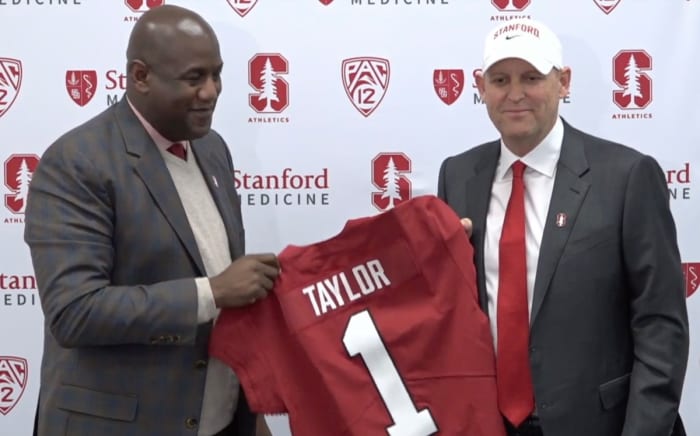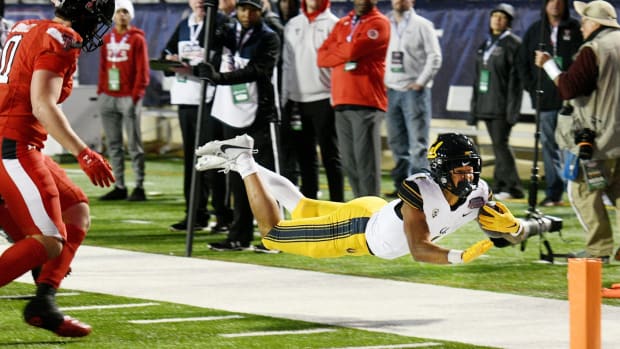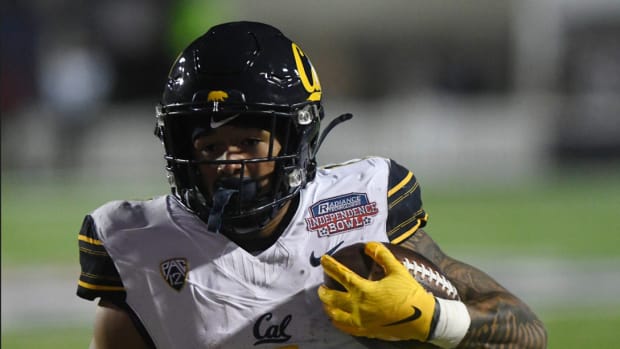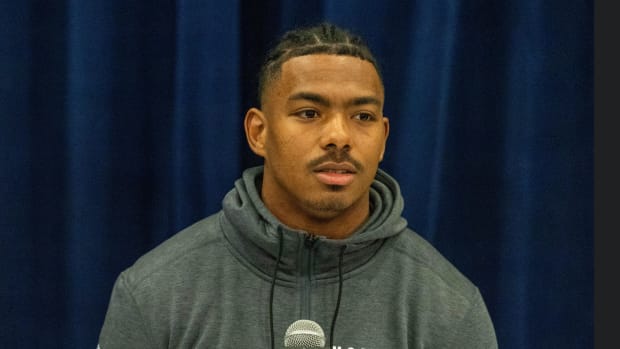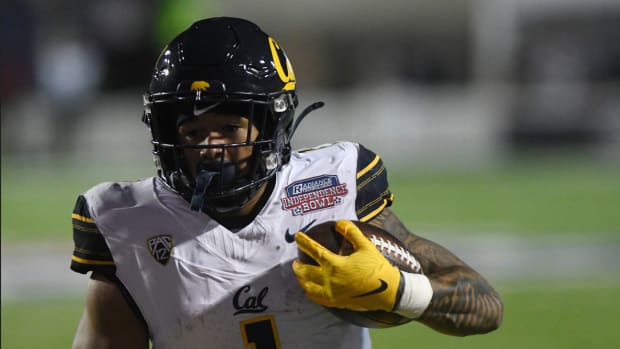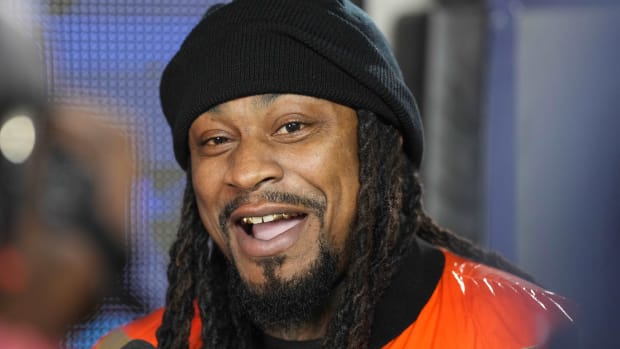New Stanford Coach Troy Taylor: `Cal Forged the Person I Am . . . I'll Be Forever Grateful'
Troy Taylor hit a home run at the Monday morning news conference formally introducing him as Stanford’s new football coach. He said all the right things and did so with clarity and eloquence.
He also made a point of acknowledging his roots across the Bay at his alma mater, which now becomes his rival.
“Cal’s forged the person I am . . . it’s been a big part of it,” said Taylor, who set passing records as the Bears’ quarterback from 1986 through ‘89. “You come in as an 18-year-old teen-ager and leave when you’re 21, 22. Those experiences really create who you are, how you see the world. So I’ll be forever grateful to Cal. It was an unbelievable experience.”
Taylor, 54, arrives at Stanford after compiling a sparkling 30-8 record in three seasons coaching in his hometown at FCS-level Sacramento State. He said all of his experiences have contributed to his readiness to be a head coach of a Power 5 program, but said it began in Berkeley.
“I do think it’s helped me prepare for this moment. The student-athletes at Cal and Stanford and the institutions really strive to be great academically an emphasize that. It attracts a different type of student-athlete,” he said. "I rubbed shoulders with those guys every day as a student-athlete at Cal.
“Excited to be here, excited to continue a great rivalry. It’s one of the oldest rivalries and I’m excited to compete against Cal.”
Taylor’s resume includes working as an assistant at Cal (1996-99), head coach at Folsom High School (2002-15), and offensive coordinator at Eastern Washington (2016) and Utah (2017-18) before taking over the Sac State program. He talked about taking “the road loess traveled” throughout his coaching journey and following his “bliss,” not money.
He called the opportunity at Stanford “a dream come true,” and said there’s no place he’d rather be.
“We’ve moved around a little bit and we’ve found our final destination,” he said. “I feel at home.”
Taylor is not the only coach on campus with ties to Cal. Basketball coach Jarod Haase began his college playing career as Jason Kidd’s backcourt partner in Berkeley. Stanford baseball coach David Esquer coached at Cal for 18 seasons.
And football coaching icons Bill Walsh and John Ralston both worked as young assistants in Berkeley before moving to Stanford.
The equation has worked occasionally in the opposite direction, most notable when former Stanford basketball coach Mike Montgomery came to Cal and led the Bears to the 2010 Pac-10 championship.
Taylor said he’s been welcomed by his fellow coaches at Stanford, noting it was “surreal” to receive a text message from Tara Van Derveer, adding that he plans to pick the brains of those more familiar with the culture. “I’m gong to wear those people out,” he said.
Taylor said he’s already met with all of Stanford’s returning players and invited each of them to remain in the program. The Cardinal has verbal commitments from 13 high school prospects, according to rivals.com, and Taylor said he intends to honor all of those scholarship offers and will visit those players before the early signing period begins on Dec. 21.
Asked about Stanford’s ability to draw players out of the transfer portal, which has been a challenge for the program, Taylor said, “We’re open to the transfer portal but we’ve got to make sure it’s the right fit. That will not be compromised.”
Stanford already has lost a reported 15 players to the portal, not counting quarterback Tanner McKee, who announced he will enter the NFL draft. Four quarterbacks remain on the roster, including sophomore Ari Patu, who played at Folsom High (not under Taylor) and is the brother of former Cal linebacker Orin Patu, who has said he will transfer.
Taylor said he will look everywhere for assistants to fill his staff, including those still on campus and those he worked alongside at Sacramento State. He’s looking for with aides with “high integrity, high output and low ego,” stressing over and over that his No. 1 priority is making sure his players graduate and have a great college experience.
Asked about his offense, Taylor said he will be hands-on and will call plays, just as he did at Sacramento State.
“To describe it, I would say we’re dynamic,” he said. “Offensive football is about finding space, creating space and the different ways of doing it. We want to create as much anxiety for our opponent and their defense as possible.
“That’s doing a lot of different things. Dynamic, aggressive. Again, we’re not fear-based. We’re going to attack. We’re not worried about making mistakes. We’re driven for the desire to be successful.”
He said his offensive system is flexible and can adapt to a dual-threat quarterback or a traditional drop-back QB. “There’s great players everywhere and there’s great players who have the acumen to come to Stanford and be successful,” he said.
Taylor sees no reason Stanford cannot recapture the high-level of success it had for a decade under Jim Harbaugh and David Shaw before the program dipped the past few years.
“I live in the realm of possibility,” he said. “I think anything’s possible. I go into every situation thinking it’s going to work and if it’s not working we adapt and adjust. We’ve got great people here . . . there’s no reason we can’t have incredible success here on a sustained basis.”
Cover photo of Stanford athletic director Bernard Muir and new football coach Troy Taylor
Follow Jeff Faraudo of Cal Sports Report on Twitter: @jefffaraudo
